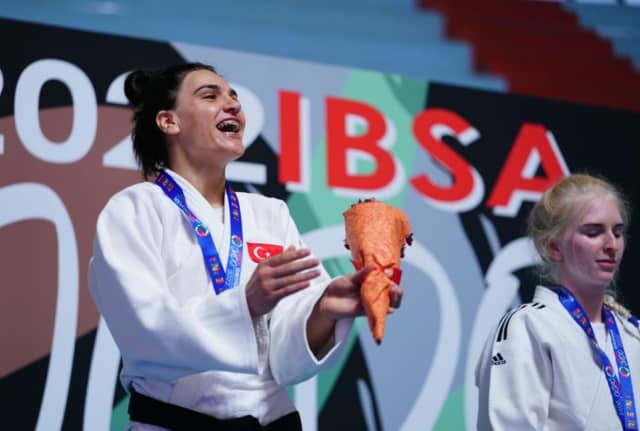The biggest change, without a doubt, is the split between the J1 category for blind and almost blind and the J2 category for partially sighted judoka. The slightest sight can give athletes a big advantage over others because of the awareness of their surroundings. The change however, has had big implications for VI judo.
The new categories mean that all athletes need to have new eye classification, which is done at the competitions during the year. It means earlier travel to competitions and is sometimes challenging for federations. Next to that, VI judo is still a sport that is in a development phase for many federations, which means tight budgets for the teams. These are the main reasons why federations waited for the Paralympic qualification period to begin.
So, months after introducing the new weight and classification categories, the number of athletes spiked at this European Championships and these numbers are really important in deciding the number of Paralympic spots per category. This is also why, in Baku in November 2022, during the World Championships, the decision about the qualification process will be made by the IBSA Judo Committee. Subsequently, the decision will be made public on the IBSA website.
European Championships Highlights
This weekend, many judo heroes returned to the tatami, such as current European and world champion Oleksandr Nazarenko, Rio Paralympic champion Inna Sych (UKR), Rio Paralympic champion and 4-time Paralympic medallist Sandrine Aurieres Martinet (FRA) and double Paralympic champion Ilham ZAKIYEV. They did not disappoint; all won medals over the weekend.
A special mention must also be made about Oleg Cretul (MDA) who, at 47 years old, is one of the oldest athletes to compete. The former Paralympic champion and Olympian showed great form during the competition and found his way back to the top of the podium.
With four gold medals for Ukraine and three for Türkiye in the individual tournament, they were the top teams of the weekend. There were also gold medals for France, Georgia, Romania, Republic of Moldova, Azerbaijan, Sweden and Italy.
The third day hosted a unique team event for separate men’s and women’s teams, 6 athletes per team, with positions in all categories except the light weights: -60kg and -48kg). J1 and J2 athletes were included. Women and men each also featured an IBSA team, where multiple nations formed one team. It resulted in very exciting and tight matches at PalaPirastu Sports Palace. It was again Ukraine and Türkiye at the top with Ukraine securing gold for the women, while Türkiye won the men’s division. Bronze medals in the men’s division were won by Georgia and IBSA. The bronze medal for the women went to IBSA.




